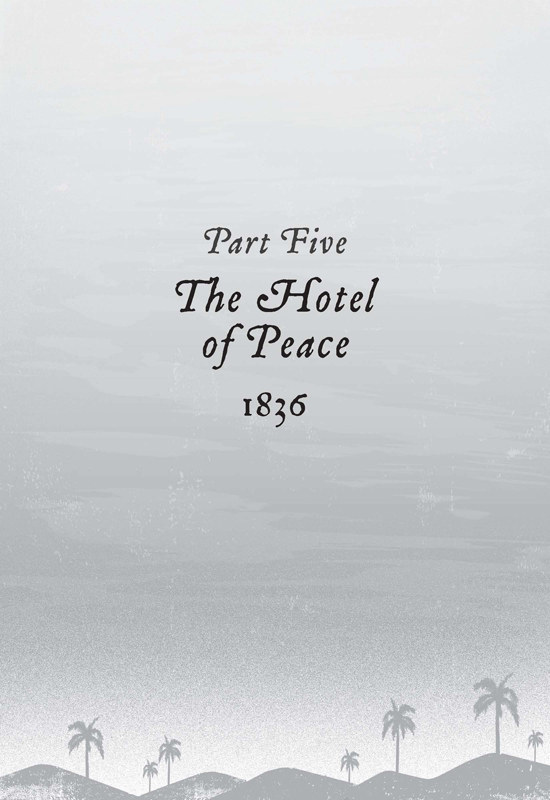The Lightning Dreamer (15 page)
Read The Lightning Dreamer Online
Authors: Margarita Engle
If Carlota's father's fortune
was restored, she could marry
her gentleman and she would be
happy.
Â
With no other way to help her
feel joy, I resolve to give her
the only object of value
that I have ever held
in my hand.
Â
This winning lottery ticket
means nothing to me,
but it will mean everything
to Carlota, who longs to regain
her value as a marketable
bride.

Sab's plan is both generous
and hideous.
Â
His only joy will grow from knowing
that his childhood love is happy
with someone else.
Â
My own future is tragic, too.
All I can do is give ugly sorrow
a comforting home on paper,
folded
and tucked awayâ
my hidden treasury
of secrets.


Perhaps it is true that time
heals love's wounds,
but for me, poetry
has always been
the swiftest medicine.
Â
Seven long years ago,
unable to stay in the valley
where Sab loved another,
I begged a ride on a caravan
of musicians and rode, swaying
in their brightly painted wagon,
all the way to Havana, as I listened
to the sad-happy lyrics of songs
about love found and lostâ
rhymed songs
wrapped
in joyful music.

Life in this huge, anonymous city
has taught me how to survive
on my own, thinking independently
and earning my own salary
as a tutor.
Â
Plans for a few healing verses
about my turbulent feelings for Sab
have grown into a novel, a whole bookâ
although I've not yet been brave enough
to set the words down on paper.
Â
I carry them around in my
heart and mind
    like wild birds
that fly in all directions
         without any fear
    of being unable to return
to the safety
of a nest.

City life is a whirl of poetry readings
and forbidden
tertulia
s, gatherings
where young and old, rich and poor,
male and female, dark and lightâ
runaway slaves and freed ones,
former masters and former
servantsâall take turns
sharing secret verses
rooted in startling
new ideas.
Â
Each evening, I go home
with a mind that glows
in the light of words,
which leap
like flames . . .

After reading a few
of my boldest new verses
in public, I begin to wonder
about the timid past
and the courageous future.
Â
All the orphans I knew are grown
by now, perhaps writing and acting
their own daring parts . . .
Â
But what about Sabâ
is he happy?
Â
And how can Carlota
ever be content in a marriage
to a man who loves only
her money?

During visits to Havana,
I'm shocked by my sister's
independence, but also inspired.
If a woman can shed all the whims
of tradition, then so can a man.
So can I.
Â
When Mamá tries to choose
my wife, I'll defy her . . .
Â
In the meantime, I need to warn Tula
that our mother is already arranging
another profitable engagement
for her.

My brother's warning
does not frighten me.
I am twenty-two years old,
and no one can tell me
how to marry.
Â
Last night, at a poetry reading,
soldiers sent the audience scurrying
for safety. I had just glimpsed Caridad
in the crowd, moving toward me,
but she escaped, and I escaped too.
Â
Now I'm convinced that I must
go overseas, to live and write
in exile, like Heredia.
Â
There is no other way to tell
a truthfully balanced tale
of slavery.

In Havana, I've earned a living
making sweet cakes.
Â
A portion of my baking
goes to a convent, for the orphans,
and a portion of each evening
is given over to poetry, as I listen
while orphans read to me.
Â
I almost had a chance to visit
with Tula and let her know
how much her winged turtle
meant to me.
Â
Even though we could not
speak, I saw her smile.
I think she knows.
